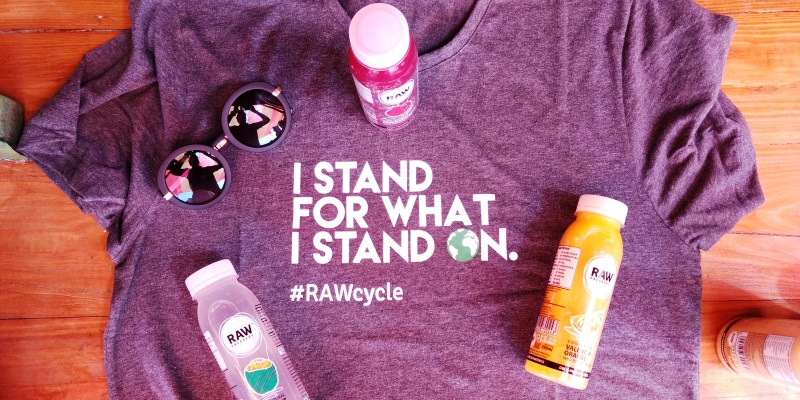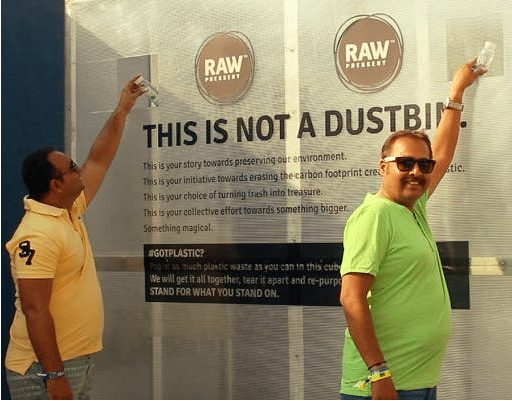In 2017, our favorite cold-pressed juice brand Raw Pressery launched their RAWcycle initiative at Sula Fest, where they aimed to recycle one-tonne plastic bottles from the festival to then break these down to create school uniforms for underprivileged children. RAW set up three creative art installations that also served as collection points for the bottles so that festival-goers could toss their bottles away for a good cause. Based on an article for YourStory, RAW had a goal to recycle 60,000 kgs of plastic before 2020.

What’s special about Raw Pressery is that the juice brand has poised itself in the market as “India’s largest clean label juice brand”, based on Founder Anuj Rakyan, and since then, they’ve also figured out a way to be creative with the plastic waste they’re product could potentially create. While the initial recycled bottles resulted in 300 uniforms for children, new recycling technologies have enabled the organization to be able to set up collection points all across Mumbai, at both corporates and homes. These plastic bottles are then transformed into soft, polyester threads that then result in really cool, eco-friendly clothing, shoes, bags, and other accessories.

So, what is our plastic impact on the environment?
Based on Bloomberg, the Central Pollution Control Board estimates that in 2017-2018, India generated nearly 661,000 tonnes of plastic waste at least, which is enough to fill over 66,000 – 10-tonne trucks. This is a brutal underestimation, however, as many of the states did not even report any sort of pertinent information on their plastic waste. In terms of consumption, India is gobbling up 16.5 million tonnes of plastic based on data provided by PlastIndia Foundation, and you better believe that we’re spitting it out into our landfills and oceans as well. That’s the sad truth.
How is RAWcycle disrupting the corporate quest for sustainability?
RAW is setting an example of how businesses can be innovative while continuing to take measures to be sustainable. Even though 100% sustainability cannot be achieved today, RAW realizes that something can be done to reduce their own carbon footprint and make something out of the waste their own product creates.
How does it work?
Google has already hopped on this eco-friendly bandwagon and the RAW team has placed collection bins for employees to dispose of their plastic waste. RAW arranges a weekly pick-up and then the bottles get upcycled into Google-branded merch! RAW plans to engage with brands across India to create merchandise and also distribute a large portion of what is made to NGOs that work with underprivileged children. RAWcycle has just launched their own line of fashionable crop-tops and t-shirts, an effort spearheaded by Atiya Rakyan.
Seams For Dreams is proud to know that influential Indian brands are now setting the tone for new businesses to be accountable. To know more about RAW’s efforts, be sure to follow them on social media @rawpressery.
Keep giving in style!



